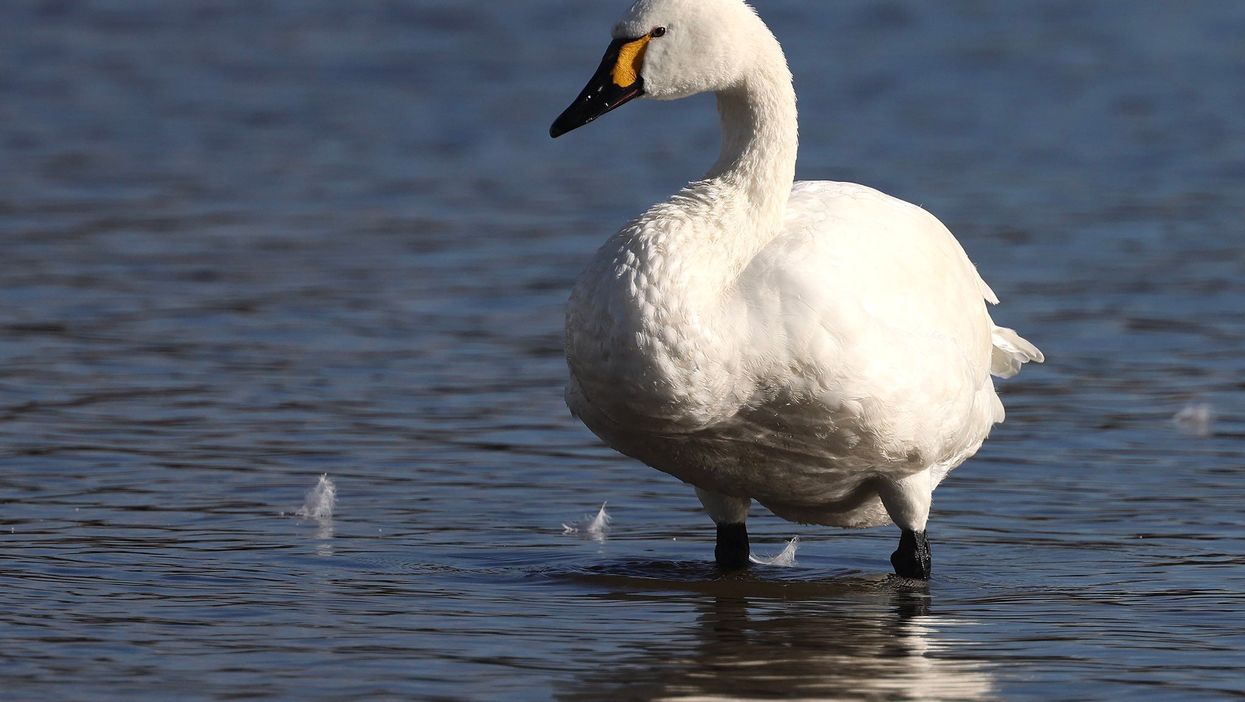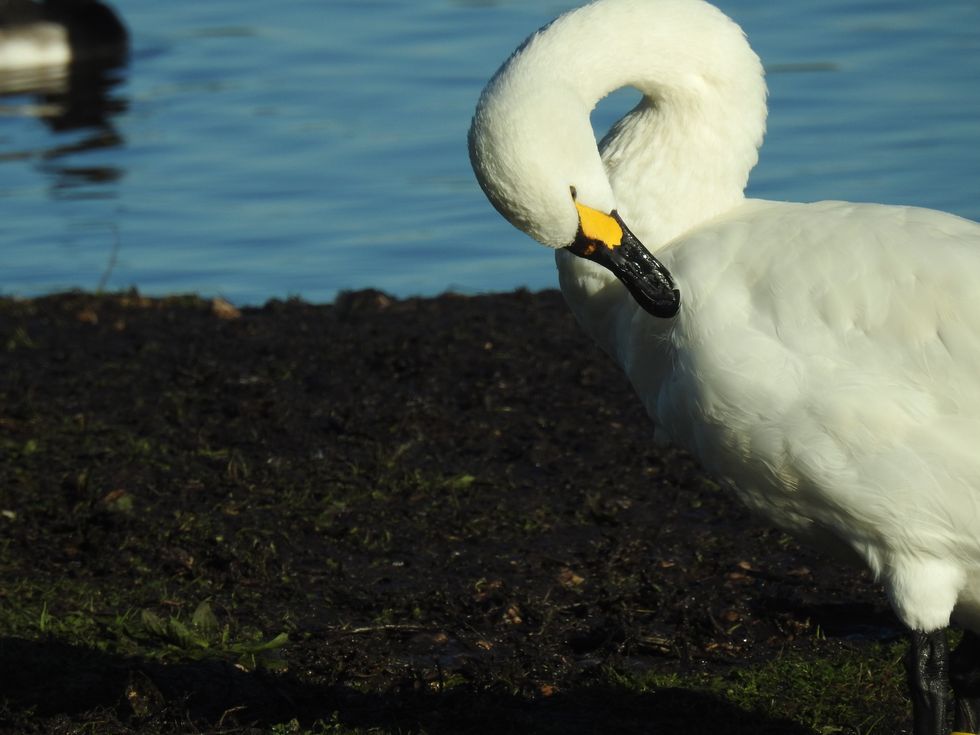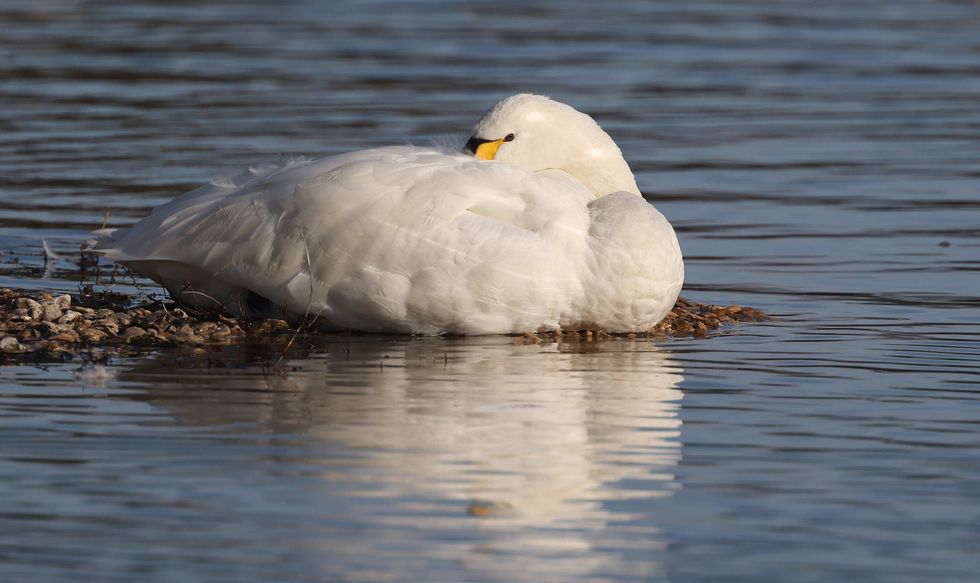
The first Bewick’s swan has arrived at a nature reserve in Gloucestershire – heralding the start of this year’s winter.
The swan arrived last Saturday to spend the winter at the Wildfowl and Wetlands Trust (WWT) in Slimbridge.
The bird, which has been identified as an individual named Allington, is around three-and-a-half years old and has been wintering at Slimbridge since he first arrived as a cygnet in December 2018.
Allington usually flies in with his parents, By-Brook and Keynell, but this year he arrived alone.
Every winter the swans fly about 2,000 miles (3,500km) on their annual migration from Arctic Russia to seek out comparatively warmer weather, and their arrival in the UK is traditionally seen as the start of winter.
The Bewick’s have been studied at Slimbridge for more than 50 years, with more than 10,000 being recorded.
WWT founder Sir Peter Scott was the first person to notice that each bird has a unique bill pattern, making it possible to identify individuals.
WWT swan expert Dr Julia Newth said: “Over that time, the comings and goings of individuals and family dynasties has led to over 10,000 swans being recorded.
“This remains one of the longest studies of a single species on record.”
Numbers of Bewick’s swans have been declining from around 29,000 in 1995 to approximately 20,000 recorded in 2015, and conservationists are still trying to confirm the reasons for the decline.
“There is no clear picture emerging relating to whether the problem lies with poorer breeding or higher mortality, or indeed both,” added Dr Newth.
“Possible reasons for the decline could be lower survival rates through illegal hunting and/or collisions with man-made structures such as power lines.”















